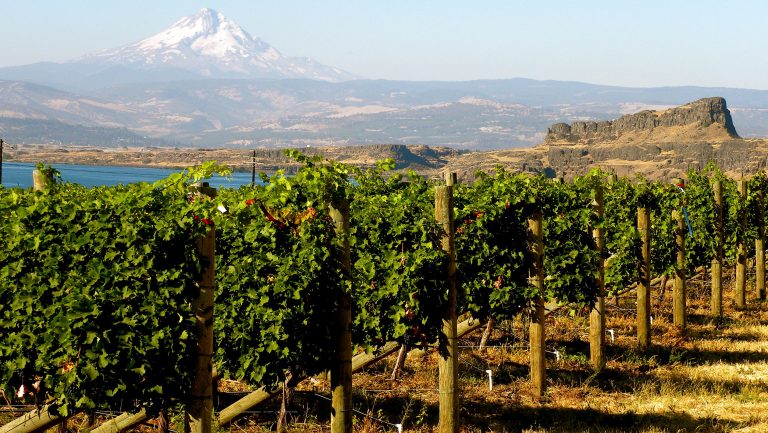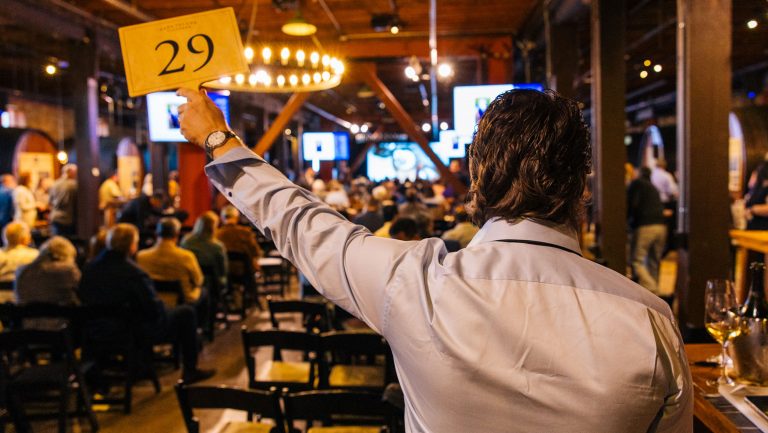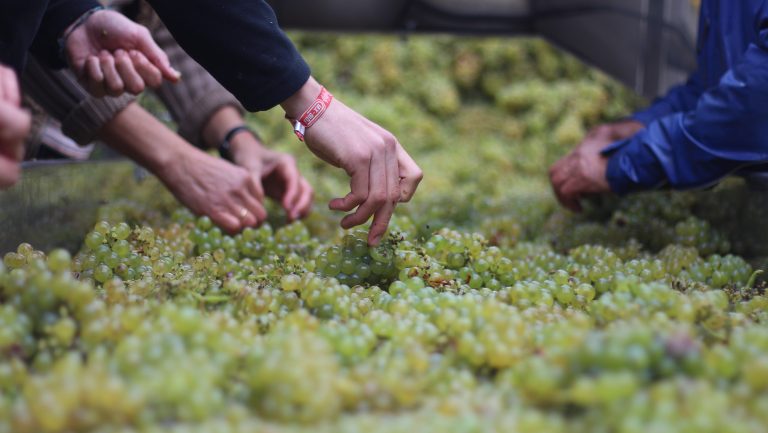Like Uber drivers, Task Rabbits, and other freelance contractors, many of today’s sommeliers are trading in staff positions for short-term consulting gigs—or taking on side hustles in addition to their full-time restaurant or wine bar positions. But while consulting requires many of the same skills one needs in a full-time role, the goals, perks, and pitfalls of these commitments diverge.
“In my own joint,” says Paul Grieco, the owner and wine director of Terroir in New York City, “I put together a wine list in a very selfish fashion. I only buy wine that I want to drink. I don’t think about what the guests want to drink when they come into my wine bar. I’m not beholden to what grape or what style might be popular.”
What makes Terroir’s list work is that Grieco is present. “If you open up my wine list and you’re put off because you don’t see any wines that you recognize,” he says, “I can identify that discomfort. I get to come in and have a conversation.” After all is said and done, he says, “not only did you get that glass of juice that you wanted, but you’ve experienced something different than you might have.”

Don’t miss the latest drinks industry news and insights. Sign up for our award-winning newsletters and get insider intel, resources, and trends delivered to your inbox every week.
Grieco recently took on his first consulting gig, helping out his friend Will Baldwin at Lady’s, a new restaurant in Brooklyn. But at Lady’s, Grieco couldn’t count on introducing a guest to unfamiliar wines face-to-face, so his approach had to be dramatically different.
“For that list,” he says, “I absolutely had to listen to what the guest wanted.” Baldwin and his partners were opening a restaurant featuring Italian food, so Grieco opted for wines from every major region of Italy. He notes that while the Lady’s list “doesn’t look like a Paul Grieco list, and it doesn’t read like a Paul Grieco list, it tastes like a Paul Grieco list,” which is to say that he’s sought out terroir-driven bottles that are true to their varietal identity.
Doing Your Due Diligence
Making a list you’re proud of—and one that customers can relate to—is only part of a successful partnership, though. “Having clear expectations on paper [from both sides] as early in the conversation as possible is key,” says Chris Struck, a sommelier at Union Square Cafe in New York City. Struck consulted during and after his time on the floor as an assistant sommelier at Racines NY for restaurants including Arrogant Swine in Bushwick, and White Street in Tribeca. He emphasizes that the specifics of a consultant’s expected hours on site, the budget for inventory, the payment schedule, and the timeliness of communication “should be set in stone.”
Struck also cautions fellow sommeliers considering such a gig to be cognizant of any financial issues prospective clients might have. Beyond the obvious concern about disappearing paychecks, there’s a risk that the consultant’s personal reputation with sales reps and producers could be damaged. “Whomever you consult for is an extension of yourself,” Struck says, “whether you like it or not.”
The goal of those early conversations is to outline each party’s duties, and financial considerations ought to be paramount. Bradford Taylor, of Ordinaire in Oakland, California, who has consulted at KronnerBurger and Del Popolo in San Francisco, suggests that consultants make sure, if at all possible, that they’re not responsible for accounts payable. “Otherwise,” he says, “you’ll waste lots of time forwarding onerous emails.”
When starting discussions with a prospective client, Theresa Paopao (who consulted on multiple lists while working as the wine director at Ribelle in Brookline, Massachusetts, before moving on to split her time between Asta and BRIX Wine Shop in Boston) likes to present a list of questions in order to establish a baseline: “Do you want a list that’s stable for a month? A season? A year? What are the target margins? Logistics like storage temps, access to locked doors, and who is responsible for making all the POS buttons are boring but necessary.”
Craig Perman, of Perman Wine Selections in Chicago (who consults for Fat Rice in Chicago, and Boltwood Restaurant in Evanston, Illinois), adds that it’s important to sniff out whether a client is going to be supportive—and excited—about the changes you bring. “The best gigs,” he says, “are always where the owners let you do your thing.”
More Than Just a List
Consulting can pose challenges that you won’t experience as a wine director working the floor, especially when it comes to staff education. “In my own restaurant,” says Paopao, “I can open a new bottle and do on-the-spot training whenever I want. You don’t have that luxury when you’re consulting remotely,” in which case her advice is to plan “efficient and effective” training to prep the staff.
Steven Grubbs, wine director at Empire State South in Atlanta, who recently consulted on the wine at 8ARM, adds that it’s crucial to establish complete systems to help the wine list work in the absence of a wine director. “You have to make sure storage temps are right and that everybody knows what gets stored where [and why],” he says. This might mean that it’s necessary to post signs to remind the staff about storage details and which glass is used for which wine. Grubbs also recommends that the wines you select aren’t all obscure bottlings requiring explanation (or decanting). “The list has to be reasonably appropriate to the abilities of the people who will actually work with it,” he says. “They’re not mechanics, after all, so they should be given a car that runs dependably.”
Grieco is an advocate for longer consultant engagements, believing that a restaurant should get more than just an opening list. He recommends an inventory spreadsheet, and organizational structure for the cellar. Ideally, he says, the consultant will be around for a predetermined number of hours for the first six months to make sure things are being maintained, to listen to the staff, and to continue education. “My hope,” he says, “is for an ongoing relationship … and part of that is the passing of the baton from the consultant to the client.”
The seamless departure of the consultant is “the best indicator of a well-executed consulting gig,” echoes Taylor; it demonstrates that the staff is well-trained to take over. “Let’s call it dialectical consulting,” he says, “wherein the pinnacle is its dissolution.”
Putting significant energy into staff training is Taylor’s key to avoiding a situation where the list feels alien to the restaurant—that is, where servers are pouring wine with which they have no authentic relationship. He says that building a good connection with the staff and introducing them to the wines is a highlight of his work. “It’s amazing,” he says, “watching servers getting turned on to wines, telling you stories about how they turned people on to wines, watching their palates develop and their love for wine grow.”
For a wine director, consulting on an outside list can be an opportunity beyond whatever financial gain it may bring. Paopao says it provides “insight on how other businesses operate, and can also offer the opportunity to work with wines and regions that are outside of your normal scope.” For each project, Paopao likes to delineate a new set of invisible rules for herself—say, focusing on wines made on mountains or on islands, or putting a cap on ABV. Creating the list at Lady’s, says Grieco, allowed him to dive deep into Italian wines in a way that he says he hasn’t had the chance to do for 25 years.
Taylor accepts no payment beyond free burgers and pizza from his clients (who are all also personal friends); he thinks of his consulting as “an opportunity to get natural wines in people’s glasses” (as well as grow his, and Ordinaire’s, brand visibility).
When I expressed some hesitation about the number of wine lists built by off-site consultants these days, Grieco stopped me, declaring his empathy with owners faced with high labor costs. It can be wise financially, he said, to hire a short-term consultant for $10,000 rather than committing to having a high-paid wine director on staff month after month.
Even in a short time, a good consultant can accomplish a lot, creating a self-sustaining program that fits with a restaurateur’s vision. “A good consultant,” says Paopao, “can listen, understand, and execute. A great one can keep their ego out of it.”

Dispatch
Sign up for our award-winning newsletter
Don’t miss the latest drinks industry news and insights—delivered to your inbox every week.
Maggie Hoffman is the author of “The One-Bottle Cocktail,” coming in 2018 from Ten Speed Press, and the former managing editor and drinks editor of the website Serious Eats. She is based in San Francisco.







